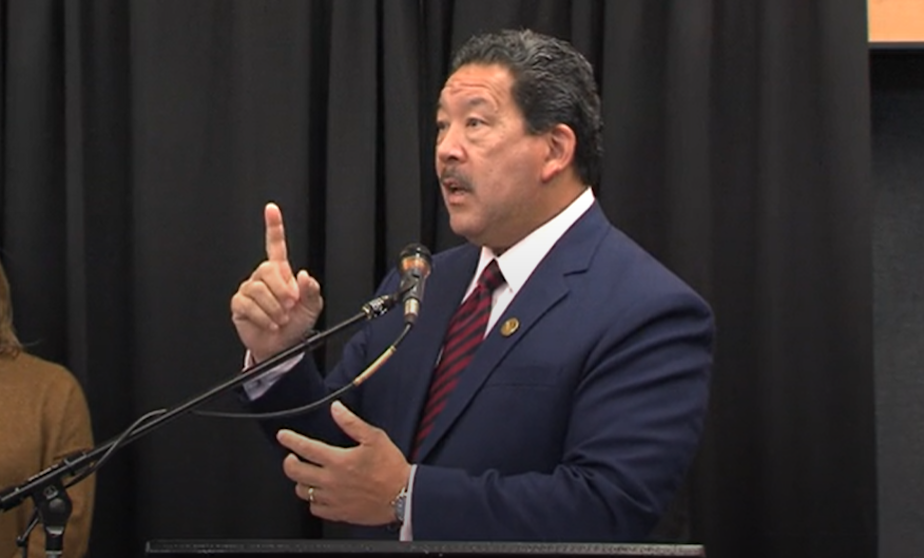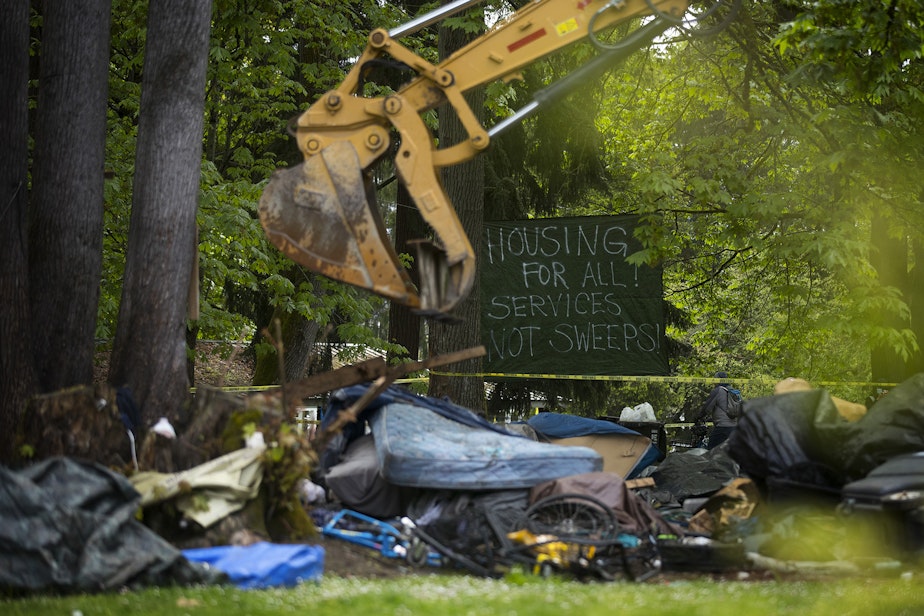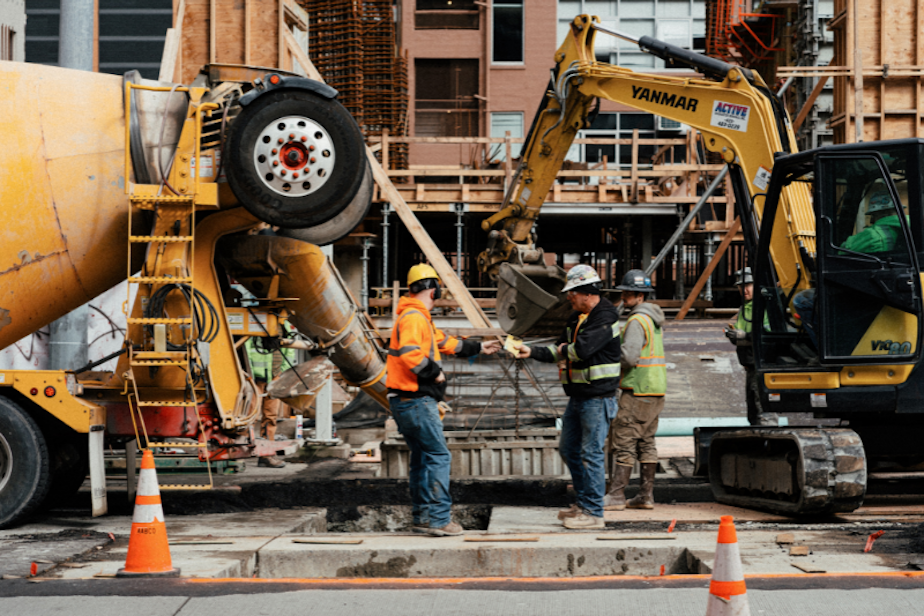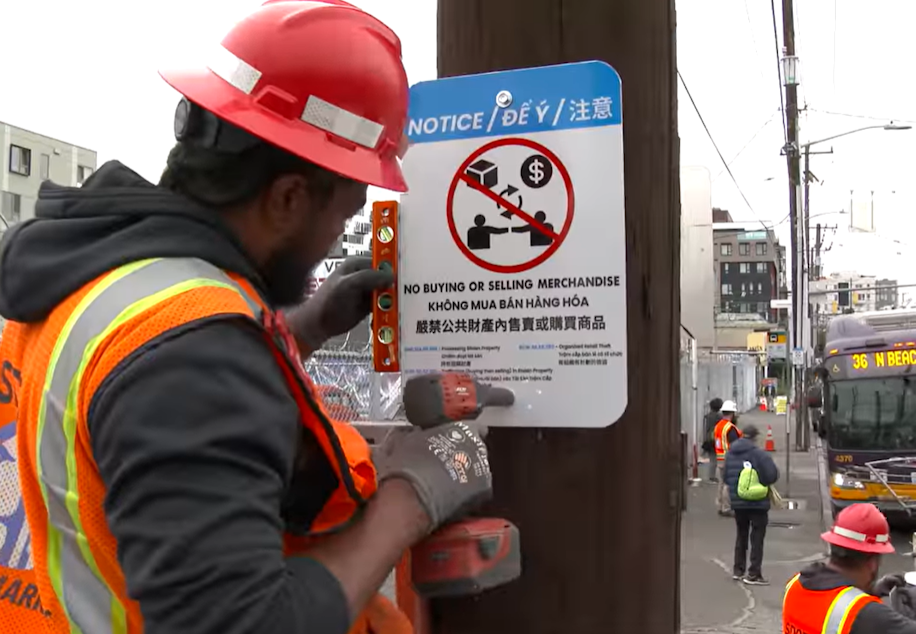9 points from Seattle Mayor Harrell’s 2024 State of the City speech

Seattle Mayor Bruce Harrell gave his annual "State of the City" address Tuesday, leaning into the setting at the Museum of History and Industry to play up the progress he argues his administration has been making over his first two years.
Harrell quoted Winston Churchill’s line, "Those that fail to learn from history are doomed to repeat it." He said his administration has been building on Seattle’s historical reputation for innovation to address the biggest problems facing the city.
While the mayor spoke about transportation, the budget, climate change, and other issues, the biggest topics were homelessness and public safety.
Homelessness
Harrell made homelessness the centerpiece of his centrist campaign back in 2021, promising to build more units of affordable housing but also to remove encampments in "incompatible" public spaces.
Sponsored
Critics have said Harrell's encampment sweeps after the pandemic are often simply moving people from place to place without enough temporary or permanent shelter available. But Harrell pointed to areas where he sees progress.
"Over 1,000 people have come indoors, and tents on our sidewalks and in our parks have been reduced by half from over 1,000 when I took office," Harrell said.
In the winter of 2022, when Harrell gave his first State of the City address, Seattle was home to approximately 1,000 tents and more than 300 RVs. Today, the Harrell administration said, there are 523 "verified" tents and 227 RVs.

The mayor’s office also told KUOW the city is making progress in opening new, affordable rental housing units. In 2022, 1,651 rental homes opened, and another 1,400 opened in 2023. The city expects at least 1,000 more city-funded homes will open in 2024, with caveats about possible delays due to factors beyond developer’s control.
Sponsored
Harrell argued he’s also helping reduce violence associated with encampments. His administration has said a new "points" system for deciding which encampments to remove is more effective and more equitable than the old system of just responding to the most frequent or loudest complaints by neighbors.
"This is an approach that's safer for everyone," Harrell said. "It's delivered a 41% decrease in gun violence incidents related to homelessness and a 16% decrease in fires at encampments or lived-in RVs."
Harrell also spoke about the troubled King County Regional Homelessness Authority, which started operating in 2021 to build a regional approach to homelessness, mostly with Seattle’s support. Last year, CEO Marc Dones resigned, and a major initiative to end visible homelessness downtown failed.
RELATED: King County Homelessness Authority gets new leader, for now
Public safety
Sponsored
Harrell said public safety is one area where he is "most energized" to work alongside the new, more centrist Seattle City Council. He touted some success.
"Last year, overall crime fell 7%, major violent crime fell 6%, and property crime fell 10%," he said.
But Harrell also acknowledged that some crimes, including homicides have increased, and he pledged to work with the Harrell-friendly City Council and state lawmakers to address it.
On police reform, Harrell pointed to progress on the federal oversight of Seattle police. “Use of force occurs in less than one-quarter of one percent of all police encounters,” he said.
Sponsored
But last year also saw continuing problems with the culture at SPD. Harrell addressed about the need to recruit new officers "that share our values," and spoke glowingly about the new CARE teams, in which mental health professionals are dispatched to respond to select 911 calls alongside police officers. The mayor promised to expand the program.
Drugs
On the fentanyl epidemic, Harrell pointed to a "dual" approach in the new city drug ordinance, which he argued is "rooted in both accountability and a connection to services to get well." Harrell said SPD has "diverted nearly 150 people to case workers and service providers" and "seized an estimated 2 million deadly fentanyl pills and is arresting dealers, traffickers, and those causing the most harm."
He also spoke about the introduction of an innovative drug program that rewards people for not using drugs.
Transportation
Sponsored
On transportation, Harrell promised progress with the upcoming transportation levy renewal package, which will be going to the voters in the fall. Harrell said there will be four components to the package:
- Focusing on the basics, like potholes
- Fixing bridges
- Addressing "climate action" by planting more roadway trees and expanding electrification, among other items
- Improving safety in areas like sidewalk construction

Climate change
On climate change, Harrell said there was progress last year with the city’s new Building Emissions Performance Standard, which aims to reduce building emissions by 27% and to cut overall greenhouse gas emissions by 10%.
For 2024, Harrell said the focus will be on reducing household emissions, among other priorities.
RELATED: Seattle Council picks CID activist Tanya Woo to fill open seat
Economy and Downtown
On the economy, Harrell spoke about progress in areas including his Downtown Activation Plan:
- More than 106,000 residents are now living Downtown.
- Over 80,000 workers come to their offices Monday to Friday.
- The city saw the highest number of hotel rooms sold in a summer since 2019.

"From SODO to the Chinatown-International District, our Downtown is special because it is diverse – in places, in people, in industries, and in jobs," Harrell said. "Making these neighborhoods safe and activated for small businesses and community members is a priority."
Comprehensive plan
Harrell promised that, in the next two weeks, he’ll release details of a new One Seattle Comprehensive Plan Update.
He said it will bring "missing middle housing to every neighborhood and expand density citywide, with a focus on areas with strong transit access, close to shopping and services, and other amenities."
Budget deficit and taxes
The city is facing a looming budget deficit, near $250 million, starting next year.
Like most members of the current City Council, Harrell said he would work to find savings in the current budget and was critical of raising taxes to fill the gap.
"While there are some who would suggest the answer lies in new revenue, the fact is that passing a new or expanding tax would not address the fundamental issues needed to close this gap in the long run," Harrell said.
Sports
Harrell spoke about doing "whatever it takes" to bring back the Sonics to Climate Pledge Arena, but he stopped short of making any announcement.




